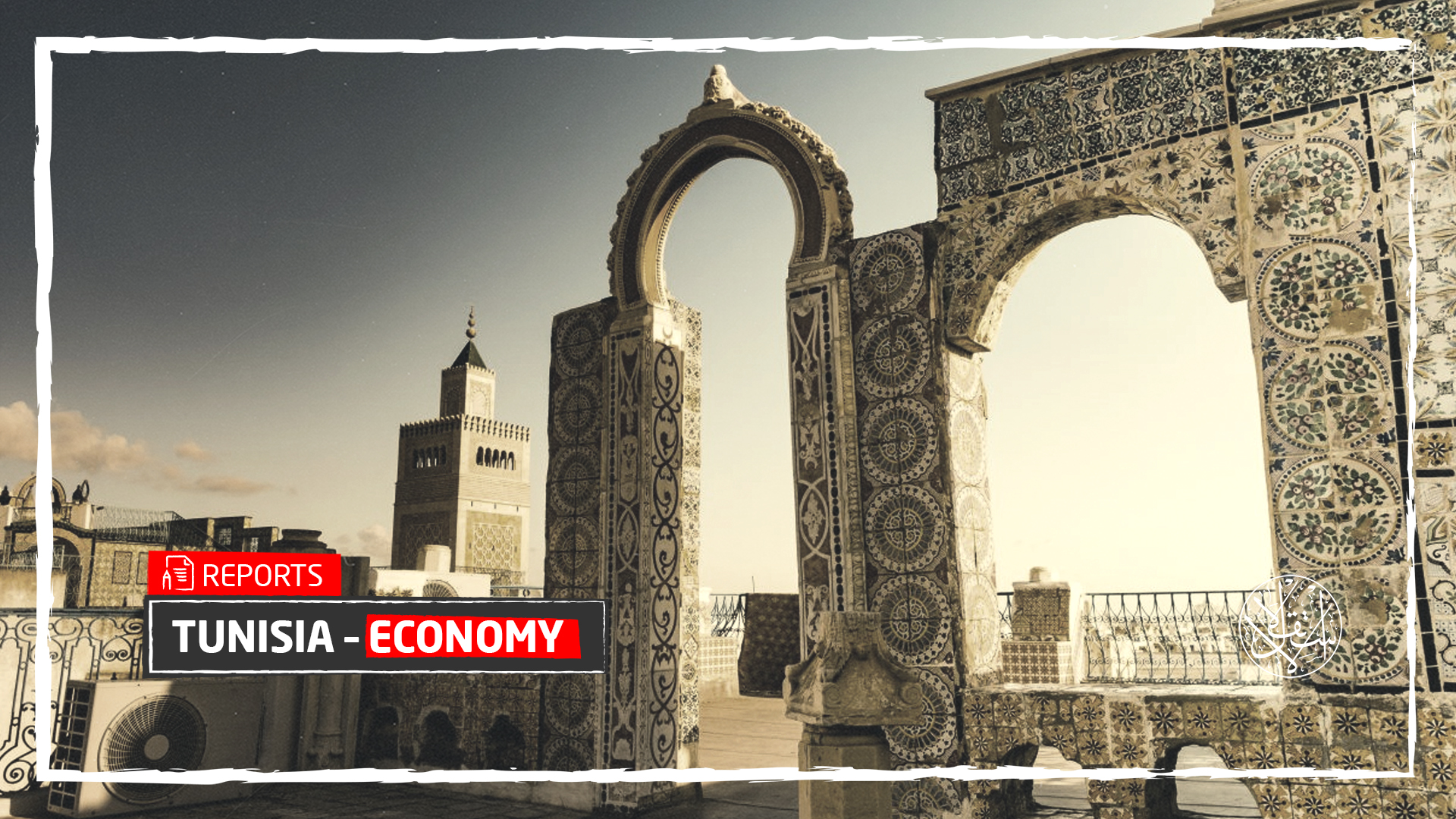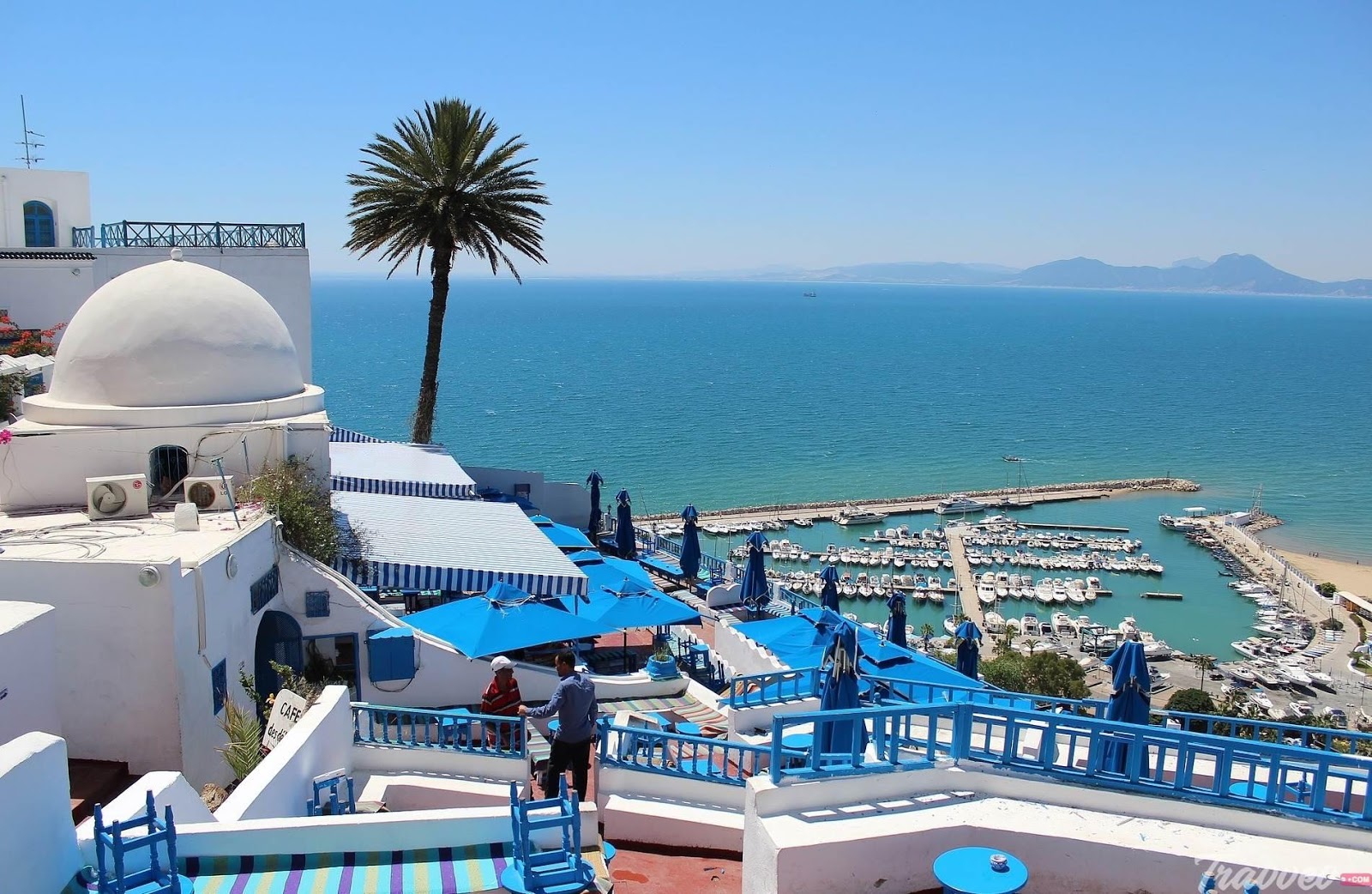What are the Impacts of the Severe Decline of Tourism in Tunisia?

The spread of the Corona pandemic has undermined tourism activity in Tunisia, negatively affecting the sector’s revenues by more than 50 percent during 2021, at a time when the country is in a state of economic and financial imbalance.
Tourism revenues fell by about 52 percent, during the first four months of 2021, to 476 million dinars (174.8 million dollars), compared to the same date of 2020, according to statistics published by the Central Bank of Tunisia.
The Tunisian tourism sector represents about 8 percent of the gross domestic product, and is considered a major source of foreign exchange in the country.
This decline in tourism revenues comes after an economic contraction in the country in 2020 amounted to about 8.8 percent, which prompted the government to start talks with the International Monetary Fund during May 2021, to request a package of financial assistance in an attempt to restore the country's economic balance.
The country is experiencing an unprecedented economic crisis, with a fiscal deficit of 11.5 percent of GDP in 2020.
Repercussions of the Crisis
Tourism in Tunisia is one of the most important sources of foreign exchange coming into the country, and it constitutes a major share of the country's GDP, which has been facing political, economic and investment challenges for a decade, which means that the repercussions of this decline will be painful.
According to the economist and spokesman for the Heart of Tunisia party, Sadiq Jebboun, the tourism sector in Tunisia is important, noting that it occupies a key position within the service sector, which represents about more than 60 percent of the gross domestic product. The crisis in the tourism sector has harmed the country's hard currency income.
Jabnoun added to "Alestiklal", that the tourism sector directly and indirectly labors approximately 1.5 million Tunisians, without calculating what this sector adds to the operation of other sectors related to it, such as the industrial and agricultural sectors. Thus, tourism in Tunisia is a major sector for employment.
With the decline in tourist demand in Tunisia in light of the Corona crisis, about 90 percent of hotels closed their doors pending further notice, in addition to the dismissal of more than 45 percent of workers in tourist agencies, with expectations that this number would worsen and some agencies would go bankrupt.
According to the latest data, the National Institute of Statistics announced that the unemployment rate in Tunisia rose to 17.4 percent during the fourth quarter of 2020, compared to 16.2 percent during the third quarter of the same year.
For his part, Professor of Economics at the University of Carthage, Reda Al-Shakandali, explained that the repercussions of Corona on Tunisia were very severe, especially on the tourism sector, whose revenues declined significantly.
He pointed out in an interview with "Alestiklal" that this will affect the hard currency reserves in the Central Bank, and thus will negatively affect the value of the Tunisian dinar.
Al-Sakandali pointed out that the decline of the Tunisian dinar due to the lack of liquidity from the hard currency at the Central Bank, will negatively affect financial inflation.
Consequently, prices will rise, given that the decline in the value of the local currency affects the value of imports represented in equipment and raw materials used by industrial and agricultural companies.
Data from the Tunisian Institute of Statistics (governmental) showed a slight decrease in the inflation rate in Tunisia to 4.8 percent in March 2021.
Economic Downturn
The decline in tourism revenues is accompanied by a 3 percent decrease in Tunisia’s gross domestic product during the first quarter of 2021, compared to the same period in 2020, according to data published by the National Institute of Statistics.
This downturn in GDP also comes with the disruption of major sectors in the country, the persistence of health risks around the world, and the slowdown in sectors such as construction and services.
Jebnoun believes that the GDP declined by more than 12 points as a result of the decline in the tourism sector, in addition to the suspension of exports and the industrial sector, which caused the latter to lose more than 5 points.
The volume of industrial production in Tunisia decreased during the year 2020 by 5.2 percent compared to the year 2019, according to data published by the National Institute of Statistics on February 18, 2021.
The institute attributed the economic downturn to a decline in the mechanical and electrical industries sector by 12.9 percent, the textile, clothing and leather sector by 16.8 percent, and the building materials, ceramics and crystal sector by 11.6 percent.
Shakandali added that for the first time in the history of Tunisia, the GDP in Tunisia declined during the first quarter of each year, noting that this may negatively affect the estimated growth rate in the country for this year.
Thus, it will affect the fiscal resources, which will shrink, which means an increase in the financial downturn in the state budget and the resort to external debt.
He pointed out that the agriculture and fishing sectors for the first time in five years recorded negative growth rates, although the agricultural sector recorded positive growth in 2020, when all sectors declined.
The Tunisian government expects to record a growth of 3.9 percent in 2021, while the International Monetary Fund expects a growth of 3.2 percent for Tunisia, compared to a downturn of 8.8 percent in 2020.

Hard Currency Decline
The losses of the tourism sector did not stop there, as the country's foreign reserves, which amounted on May 17, 2021, reached a value of 20.8 billion dinars ($7.65 billion).
That is, it decreased by 900 million dinars ($330.8 million), compared to 2020, which was 21.6 billion dinars ($7.94 billion).
Jebboun attributed the reasons for the decline of hard currency assets to several reasons, namely the weakness of the tourism sector and the gradual return of the export and import movement to its usual levels, as well as the redemption of debts owed by the country.
He pointed out that the only positive factor supporting foreign exchange is the rise in remittances from workers abroad to $2.7 billion at the end of 2020.
Repayment of debts due this year is estimated at 16 billion dinars ($5.9 billion), up from 11 billion dinars ($4 billion) in 2020.
Shakandali elucidated that the hard currency derived from the Tunisian economy comes through three sectors: the tourism sector, the phosphate sector, which recorded a decline during the first quarter of 2021 by about 30 percent, as well as the agricultural sector, which recorded negative growth during the same period by about 6.7 percent.
This means that foreign exchange will decline, and therefore may represent a great danger to the level of the financial balances, especially since Tunisia, in the coming months, will be required to repay debts of very large amounts.
Tunisia's 2021 budget expects borrowing to reach $7.2 billion, including about $5 billion in external loans.
With the economic data that Tunisia witnesses, the state of uncertainty increases.
This is evident in the statements of the Governor of the Central Bank of Tunisia, Marouane Abbasi, on May 21, 2021, in which he described the economic conditions in the country as the "most difficult" ever.
In his intervention before Parliament, Al-Abbasi considered that "the business climate in Tunisia is very reluctant despite the availability of opportunities, and investment is expected to decline by 14 percent in 2021."
On February 23, 2021, the global rating agency "Moody's" conducted its latest credit review of Tunisia, and downgraded the country's rating from B2 to B3, while maintaining a negative outlook.










